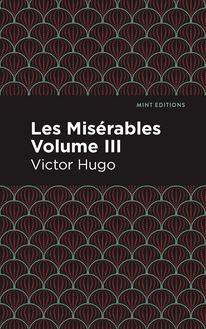-
 Univers
Univers
-
 Ebooks
Ebooks
-
 Livres audio
Livres audio
-
 Presse
Presse
-
 Podcasts
Podcasts
-
 BD
BD
-
 Documents
Documents
-
- Cours
- Révisions
- Ressources pédagogiques
- Sciences de l’éducation
- Manuels scolaires
- Langues
- Travaux de classe
- Annales de BEP
- Etudes supérieures
- Maternelle et primaire
- Fiches de lecture
- Orientation scolaire
- Méthodologie
- Corrigés de devoir
- Annales d’examens et concours
- Annales du bac
- Annales du brevet
- Rapports de stage
La lecture à portée de main
Vous pourrez modifier la taille du texte de cet ouvrage
Découvre YouScribe en t'inscrivant gratuitement
Je m'inscrisDécouvre YouScribe en t'inscrivant gratuitement
Je m'inscrisEn savoir plus
Vous pourrez modifier la taille du texte de cet ouvrage
En savoir plus

Description
The Wanderer or Female Difficulties follows a woman fleeing France to escape a painful past, only to be met with new obstacles along the way. It’s an honest depiction of eighteenth-century life without the presence of political or familial support.
A wandering woman emigrates to England to escape the violent uprising of 1790s France. With no friends or family, she must find work and connect with others for assistance. Her lack of finances and social status leave her vulnerable to the whims of wealthy employers. Despite her situation, the woman becomes involved with a man who’s unaware of her troubled past. She struggles to maintain her privacy as the truth becomes harder to hide.
The Wanderer or Female Difficulties highlights the flaws of English society built on politics and patriarchy. One woman’s survival depends on the kindness or cruelty of others. It’s a glaring injustice, that forces her to make light of dire circumstances.
With an eye-catching new cover, and professionally typeset manuscript, this edition of The Wanderer or Female Difficulties is both modern and readable.
Sujets
Informations
| Publié par | Mint Editions |
| Date de parution | 08 décembre 2020 |
| Nombre de lectures | 0 |
| EAN13 | 9781513273815 |
| Langue | English |
| Poids de l'ouvrage | 2 Mo |
Informations légales : prix de location à la page 0,0850€. Cette information est donnée uniquement à titre indicatif conformément à la législation en vigueur.
Extrait
The Wanderer
Frances Burney
The Wanderer was first published in 1814.
This edition published by Mint Editions 2021.
ISBN 9781513268811 | E-ISBN 9781513273815
Published by Mint Editions®
minteditionbooks.com
Publishing Director: Jennifer Newens
Design & Production: Rachel Lopez Metzger
Typesetting: Westchester Publishing Services
C ONTENTS Volume 1 Chapter 1 Chapter 2 Chapter 3 Chapter 4 Chapter 5 Chapter 6 Chapter 7 Chapter 8 Chapter 9 Chapter 10 Chapter 11 Chapter 12 Chapter 13 Chapter 14 Chapter 15 Chapter 16 Chapter 17 Chapter 18 Chapter 19 Volume 2 Chapter 20 Chapter 21 Chapter 22 Chapter 23 Chapter 24 Chapter 25 Chapter 26 Chapter 27 Chapter 28 Chapter 29 Chapter 30 Chapter 31 Chapter 32 Chapter 33 Chapter 34 Chapter 35 Chapter 36 Chapter 37 Chapter 38 Chapter 39 Chapter 40 Volume 3 Chapter 41 Chapter 42 Chapter 43 Chapter 44 Chapter 45 Chapter 46 Chapter 47 Chapter 48 Chapter 49 Chapter 50 Chapter 51 Chapter 52 Chapter 53 Chapter 54 Chapter 55 Chapter 56 Chapter 57 Chapter 58 Chapter 59 Volume 4 Chapter 60 Chapter 61 Chapter 62 Chapter 63 Chapter 64 Chapter 65 Chapter 66 Chapter 67 Chapter 68 Chapter 69 Chapter 70 Chapter 71 Chapter 72 Chapter 73 Chapter 74 Chapter 75 Chapter 76 Volume 5 Chapter 77 Chapter 78 Chapter 79 Chapter 80 Chapter 81 Chapter 82 Chapter 83 Chapter 84 Chapter 85 Chapter 86 Chapter 87 Chapter 88 Chapter 89 Chapter 90 Chapter 91 Chapter 92
VOLUME 1
Chapter 1
During the dire reign of the terrific Robespierre, and in the dead of night, braving the cold, the darkness and the damps of December, some English passengers, in a small vessel, were preparing to glide silently from the coast of France, when a voice of keen distress resounded from the shore, imploring, in the French language, pity and admission.
The pilot quickened his arrangements for sailing; the passengers sought deeper concealment; but no answer was returned.
“O hear me!” cried the same voice, “for the love of Heaven, hear me!”
The pilot gruffly swore, and, repressing a young man who was rising, peremptorily ordered every one to keep still, at the hazard of discovery and destruction.
“Oh listen to my prayers!” was called out by the same voice, with increased and even frightful energy; “Oh leave me not to be massacred!”
“Who’s to pay for your safety?” muttered the pilot.
“I will!” cried the person whom he had already rebuffed, “I pledge myself for the cost and the consequence!”
“Be lured by no tricks;” said an elderly man, in English; “put off immediately, pilot.”
The pilot was very ready to obey.
The supplications from the land were now sharpened into cries of agony, and the young man, catching the pilot by the arm, said eagerly, “’tis the voice of a woman! where can be the danger? Take her in, pilot, at my demand, and my charge!”
“Take her in at your peril, pilot!” rejoined the elderly man.
Rage had elevated his voice; the petitioner heard it, and called—screamed, rather, for mercy.
“Nay, since she is but a woman, and in distress, save her, pilot, in God’s name!” said an old sea officer. “A woman, a child, and a fallen enemy, are three persons that every true Briton should scorn to misuse.”
The sea officer was looked upon as first in command; the young man, therefore, no longer opposed, separated himself from a young lady with whom he had been conversing, and, descending from the boat, gave his hand to the suppliant.
There was just light enough to shew him a female in the most ordinary attire, who was taking a whispering leave of a male companion, yet more meanly equipped.
With trembling eagerness, she sprang into the vessel, and sunk rather than sat upon a place that was next to the pilot, exclaiming fervent thanks, first to Heaven, and then to her assistant.
The pilot now, in deep hoarse accents, strictly enjoined that no one should speak or move till they were safely out at sea.
All obeyed; and, with mingled hope and dread, insensible to the weather, and dauntless to the hazards of the sea, watchful though mute, and joyful though filled with anxiety, they set sail.
In about half an hour, the grumbling of the pilot, who was despotic master of the boat, was changed into loud and vociferous oaths.
Alarmed, the passengers concluded that they were chaced. They looked around,—but to no purpose; the darkness impeded examination.
They were happily, however, mistaken; the lungs of the pilot had merely recovered their usual play, and his humour its customary vent, from a belief that all pursuit would now be vain.
This proved the signal to general liberty of speech; and the young lady already mentioned, addressing herself, in a low voice, to the gentleman who had aided the Incognita, said, “I wonder what sort of a dulcinea you have brought amongst us! though, I really believe, you are such a complete knight-errant, that you would just as willingly find her a tawny Hottentot as a fair Circassian. She affords us, however, the vivifying food of conjecture,—the only nourishment of which I never sicken!—I am glad, therefore, that ’tis dark, for discovery is almost always disappointment.”
“She seems to be at prayers.”
“At prayers? She’s a nun, then, depend upon it. Make her tell us the history of her convent.”
“Why what’s all this, woman?” said the pilot, in French, “are you afraid of being drowned?”
“No!” answered she, in the same language, “I fear nothing now—it is therefore I am thankful!”
Retreating, then, from her rude neighbour, she gently approached an elderly lady, who was on her other side, but who, shrinking from her, called out, “Mr. Harleigh, I shall be obliged to you if you will change places with me.”
“Willingly;” he answered; but the young lady with whom he had been conversing, holding his coat, exclaimed, “Now you want to have all the stories of those monks and abbesses to yourself! I won’t let you stir, I am resolved!”
The stranger begged that she might not incommode any one; and drew back.
“You may sit still now, Mr. Harleigh,” said the elderly lady, shaking herself; “I do very well again.”
Harleigh bit his lip, and, in a low voice, said to his companion, “It is strange that the facility of giving pain should not lessen its pleasure! How far better tempered should we all be to others, if we anticipated the mischief that ill humour does to ourselves!”
“Now are you such a very disciple of Cervantes,” she replied, “that I have no doubt but your tattered dulcinea has secured your protection for the whole voyage, merely because old aunt Maple has been a little ill bred to her.”
“I don’t know but you are right, for nothing so uncontrollably excites resistance, as grossness to the unoffending.”
He then, in French, enquired of the new passenger, whether she would not have some thicker covering, to shelter her from the chill of the night; offering her, at the same time, a large wrapping coat.
She thanked him, but declared that she was perfectly warm.
“Are you so, faith?” cried the elderly man already mentioned, “I wish, then, you would give me your receipt, Mistress; for I verily think that my blood will take a month’s thawing, before it will run again in my veins.”
She made no answer, and, in a tone somewhat piqued, he added, “I believe in my conscience those outlandish gentry have no more feeling without than they have within!”
Encreasing coldness and darkness repressed all further spirit of conversation, till the pilot proclaimed that they were halfway over the straits.
A general exclamation of joy now broke forth from all, while the new comer, suddenly casting something into the sea, exclaimed, in French, “Sink, and be as nothing!” And then, clasping her hands, added, “Heaven be praised, ’tis gone for ever!”
The pilot scolded and swore; every one was surprised and curious; and the elderly man plumply demanded, “Pray what have you thrown overboard, Mistress?”
Finding himself again unanswered, he rather angrily raised his voice, saying, “What, I suppose you don’t understand English now? Though you were pretty quick at it when we were leaving you in the lurch! Faith, that’s convenient enough!”
“For all I have been silent so long,” cried the old sea officer, “it has not been for want of something to say; and I ask the favour that you won’t any of you take it ill, if I make free to mention what has been passing, all this time, in my mind; though it may rather have the air of a hint than a compliment; but as I owe to being as much in fault as yourselves, I hope you won’t be affronted at a little plain dealing.”
“You are mighty good to us, indeed, Sir!” cried Mrs. Maple, “but pray what fault have you to charge Me with, amongst the rest?”
“I speak of us in a body, Madam, and, I hope, with proper shame! To think that we should all get out of that loathsome captivity, with so little reverence, that not one amongst us should have fallen upon his knees, to give thanks, except just this poor outlandish gentlewoman; whose good example I recommend it to us all now to follow.”
“What, and so overturn the boat,” said the elderly man, “that we may all be drowned for joy, because we have escaped being beheaded?”
“I submit to your better judgment, Mr. Riley,” replied the officer, “with regard to the attitude; and the more readily, because I don’t think that the posture is the chief thing, half the people that kneel, even at church, as I have taken frequent note, being oftener in a doze than in a fit of devotion. But the fear of shaking the boat would be but a poor reason to fear shaking our gratitude, which seems to me to want it abundantly. So I, for one, give thanks to the Author of all things!”
“You are a fine fellow, noble Admiral!” cried Mr. Riley, “as fine a fellow as ever I knew! and I honour you, faith! for I don’t believe there is a thing in the world that requires so much courage as to risk derision, even from fools.”
A young man, wrapped up in flannels, who had been undisguisedly enjoying a little sneering laugh, now became suddenly grave, and pretend
-
 Univers
Univers
-
 Ebooks
Ebooks
-
 Livres audio
Livres audio
-
 Presse
Presse
-
 Podcasts
Podcasts
-
 BD
BD
-
 Documents
Documents
-
Jeunesse
-
Littérature
-
Ressources professionnelles
-
Santé et bien-être
-
Savoirs
-
Education
-
Loisirs et hobbies
-
Art, musique et cinéma
-
Actualité et débat de société
-
Jeunesse
-
Littérature
-
Ressources professionnelles
-
Santé et bien-être
-
Savoirs
-
Education
-
Loisirs et hobbies
-
Art, musique et cinéma
-
Actualité et débat de société
-
Actualités
-
Lifestyle
-
Presse jeunesse
-
Presse professionnelle
-
Pratique
-
Presse sportive
-
Presse internationale
-
Culture & Médias
-
Action et Aventures
-
Science-fiction et Fantasy
-
Société
-
Jeunesse
-
Littérature
-
Ressources professionnelles
-
Santé et bien-être
-
Savoirs
-
Education
-
Loisirs et hobbies
-
Art, musique et cinéma
-
Actualité et débat de société
- Cours
- Révisions
- Ressources pédagogiques
- Sciences de l’éducation
- Manuels scolaires
- Langues
- Travaux de classe
- Annales de BEP
- Etudes supérieures
- Maternelle et primaire
- Fiches de lecture
- Orientation scolaire
- Méthodologie
- Corrigés de devoir
- Annales d’examens et concours
- Annales du bac
- Annales du brevet
- Rapports de stage




















